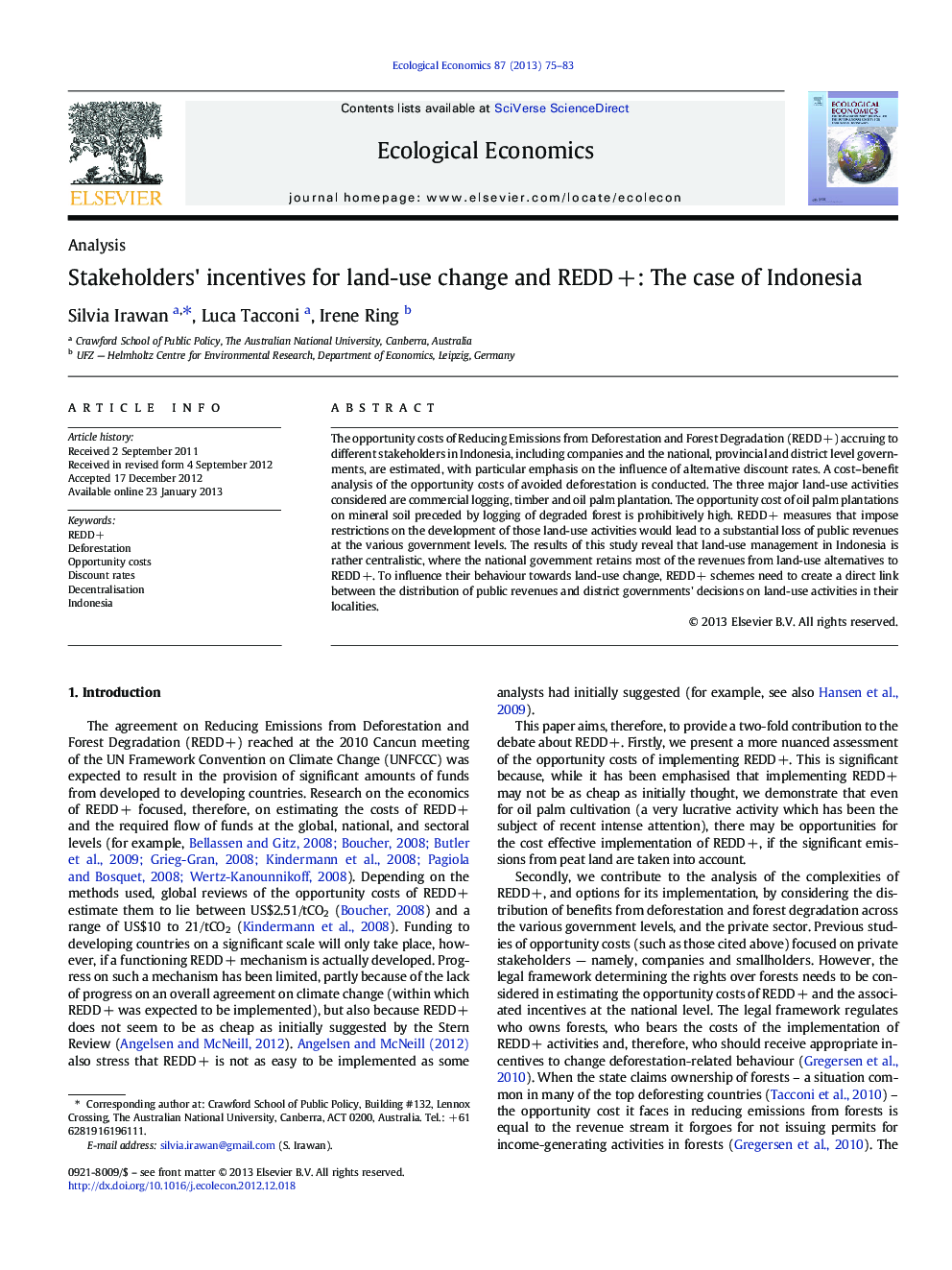| Article ID | Journal | Published Year | Pages | File Type |
|---|---|---|---|---|
| 5049998 | Ecological Economics | 2013 | 9 Pages |
The opportunity costs of Reducing Emissions from Deforestation and Forest Degradation (REDDÂ +) accruing to different stakeholders in Indonesia, including companies and the national, provincial and district level governments, are estimated, with particular emphasis on the influence of alternative discount rates. A cost-benefit analysis of the opportunity costs of avoided deforestation is conducted. The three major land-use activities considered are commercial logging, timber and oil palm plantation. The opportunity cost of oil palm plantations on mineral soil preceded by logging of degraded forest is prohibitively high. REDDÂ + measures that impose restrictions on the development of those land-use activities would lead to a substantial loss of public revenues at the various government levels. The results of this study reveal that land-use management in Indonesia is rather centralistic, where the national government retains most of the revenues from land-use alternatives to REDDÂ +. To influence their behaviour towards land-use change, REDDÂ + schemes need to create a direct link between the distribution of public revenues and district governments' decisions on land-use activities in their localities.
⺠The opportunity costs of REDD + for public and private actors are estimated. ⺠Commercial logging, timber and oil palm plantation land uses are considered. ⺠Discount rates can have a significant influence on the results. ⺠Governments' opportunity costs are substantial and can affect public service provision.
